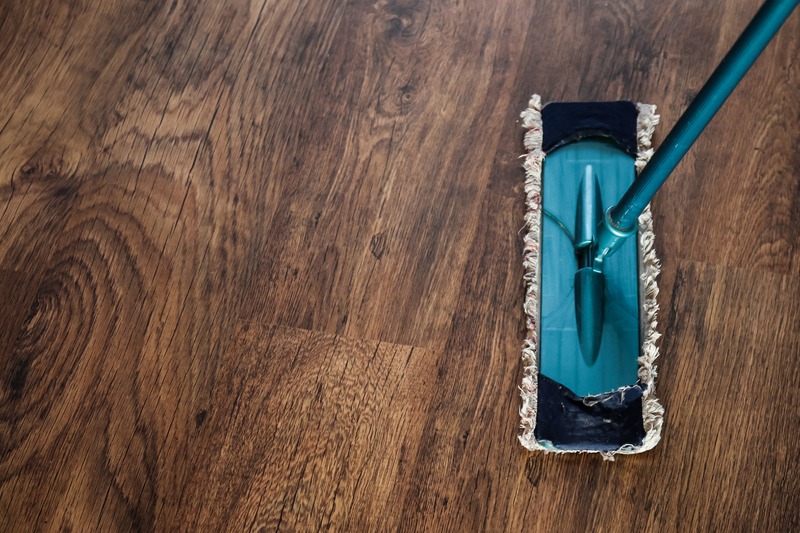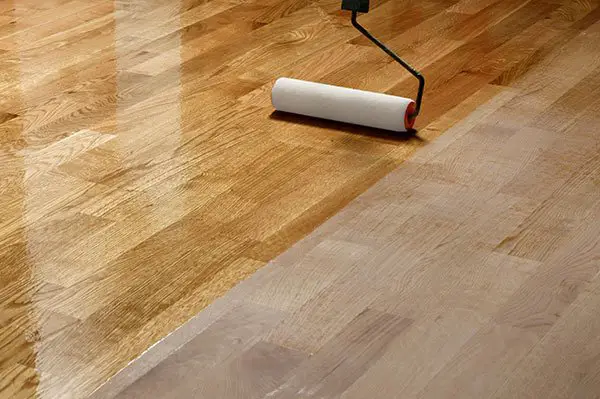We all love the look of gleaming hardwood floors, but keeping them clean can be a challenge. You’ve probably heard that bleach is a powerful disinfectant, but can you use it on your hardwood floors? It’s a question many homeowners have, and the answer, unfortunately, is a bit more complex than a simple yes or no.

Image: www.cafloordesign.com
While bleach can kill germs and remove stains, it can also damage hardwood floors if used incorrectly. In this guide, we’ll discuss the potential risks and benefits of using bleach on your hardwood floors, provide safe cleaning alternatives, and offer tips for maintaining the beauty of your wood floors for years to come.
Understanding the Risks of Using Bleach
Hardwood floors are beautiful and durable, but they are also porous and susceptible to damage from harsh chemicals. Bleach is a powerful oxidizer that can strip away the finish, leaving your floors dull, discolored, and even warped.
Here are some of the potential risks associated with using bleach on hardwood floors:
- Damage to the Finish: Bleach can strip away the protective layer of sealant or varnish on your floors, making them vulnerable to scratches, stains, and other damage.
- Discoloration: Bleach can react with certain wood species, causing them to become discolored or yellowed.
- Warpage: If bleach penetrates the wood, it can cause the wood to swell and warp. This can be especially problematic in areas that are exposed to moisture.
- Health Risks: Bleach fumes can irritate the eyes, nose, and throat, and can be harmful if inhaled.
When is Bleach a Possible Option?
In limited cases, bleach can be a safe and effective cleaning solution for hardwood floors. Here’s how to use bleach safely and effectively:

Image: www.woodfloorscleaner.com
1. Choose a Diluted Bleach Solution:
- Always dilute bleach with water at a ratio of 1:10 (one part bleach to ten parts water). This significantly reduces the risk of damaging your floors.
- Test any cleaning solution on an inconspicuous area of your floor first to see how it reacts.
2. Limited Use:
- Only use bleach cleaning solution on small, localized areas like spots or spills.
- Never use bleach to clean the entire floor surface.
3. Safety Precautions:
- Wear gloves and protective eyewear when using bleach.
- Ventilate the room well while using bleach to avoid inhaling fumes.
- Always rinse the bleach solution completely off the floor after use.
Safe Alternatives to Bleach for Hardwood Floors
For regular cleaning, there are safer and more effective options available for your hardwood floors:
1. Distilled Water and White Vinegar:
- A solution of diluted white vinegar (1:1 with water) works well for everyday cleaning.
- It can effectively remove dirt, grime, and sticky messes.
- White vinegar is naturally acidic and will not damage the finish of your hardwood floors.
2. Mild Soap and Water:
- Use a mild dish soap mixed with warm water (avoid harsh detergents).
- This gentle solution effectively cleans your floors while protecting the finish.
3. Wood Floor Cleaner:
- Commercial wood floor cleaners are formulated to be safe for hardwood floors.
- Choose cleaners specifically designed for your type of wood finish.
Tips for Maintaining Your Hardwood Floors
Following these simple tips can help you keep your hardwood floors looking their best for years to come:
- Sweep or vacuum regularly to remove dust, dirt, and debris that can scratch and damage your floors.
- Use doormats at all entrances to trap dirt and moisture before it makes its way inside.
- Wipe up spills immediately to prevent them from staining or warping your floors.
- Avoid using harsh chemicals on your hardwood floors.
- Have your floors refinished periodically if they show signs of wear and tear.
Understanding Your Hardwood Floors
To make informed decisions about how to clean your hardwood floors, it’s essential to understand the specifics of your floor type. Here are some points to consider:
1. Type of Wood:
- Hardwoods like oak, maple, and cherry are durable and generally more resistant to damage.
- Softer woods like pine and walnut are more prone to scratching and denting.
2. Type of Finish:
- The finish on your hardwood floors protects them from stains, scratches, and moisture.
- Different finishes have different levels of durability and require different types of cleaning products.
Can I Clean My Hardwood Floors With Bleach
Conclusion
While bleach may seem like a potent cleaning option, its use on hardwood floors carries significant risks. The chances of damage outweigh the potential benefits. For the safety and longevity of your hardwood floors, it’s best to stick to gentler solutions like vinegar and water, mild soaps, or specialized wood floor cleaners.
Remember, preventive care and regular cleaning are crucial to keeping your hardwood floors looking their best for many years to come. So, stay vigilant with sweeping, wiping, and using the right cleaning products. It’s all about finding the balance between cleanliness and protecting the natural beauty of your wood floors.

:max_bytes(150000):strip_icc()/OrangeGloEverydayHardwoodFloorCleaner22oz-5a95a4dd04d1cf0037cbd59c.jpeg?w=740&resize=740,414&ssl=1)




